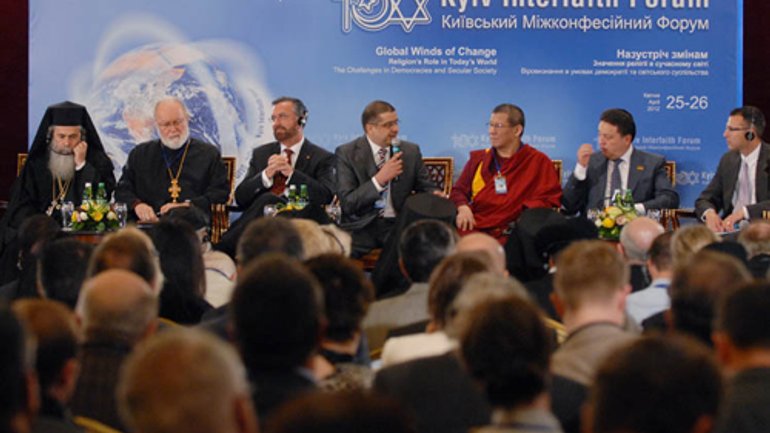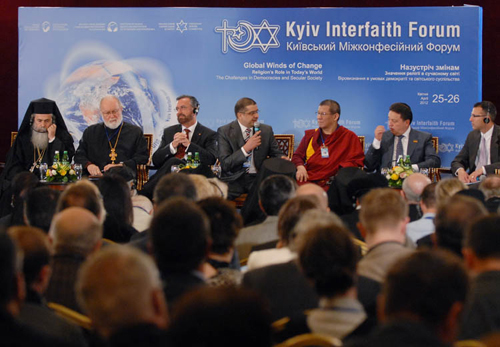Participants of Kyiv Forum Calls on UN to Stop Bloodshed Connected With Religion in Africa and Middle East

A two-day interdenominational forum “Toward Changes: Importance of Religion in the Modern World: Religion in Conditions of Democracy and Secular Society” was held on April 25-26, in Kyiv, with the participation of well-known religious leaders from various countries representing Christianity, Islam, Judaism and Buddhism in order to discuss the role and place of religion in the modern world. The forum was organized with the support of Oleksandr Feldman’s Foundation, Institute of Human Rights and Prevention of Extremism and Xenophobia and the Ukrainian Jewish Committee.
According to our RISU correspondent, Kateryna Novikova, the forum included a conference “Religion in Conditions of Democracy and Secular Society.” The participants discussed prospects of the development of religion in the global world for ten, twenty, fifty years, questions of interaction between the media and religion in the 21st century, in particular the role of media in the formation of the image of religion among the public, possibilities of changes in the field of Christianity, Islam and Judaism in the modern world, influence of the modern revolutions on our perception of religion.
An honorary guest of the forum, Patriarch Theophilos III of Jerusalem noted in his address: “Modern politics seeks to be secular: it separates religion from politics. But the main problem is that conflicts, such as one in the Middle East, cannot be settled without religious leaders. For these conflicts have a religious background.”
The Kyiv Forum has been designed by its organizers as “a center of international dialogue between the world religions. Outstanding religious and public figures from various countries of the world tried to conceptualize possibilities of establishment of ethnic-religious dialogue in the world where political and religious conflicts arise increasingly often. The participants published an Address to the Secretary General of UN, Pan Gi Mun, expressing their concern over the situation regarding the rights of religious minorities in the North-African and Middle East countries which began to progress toward democracy.










